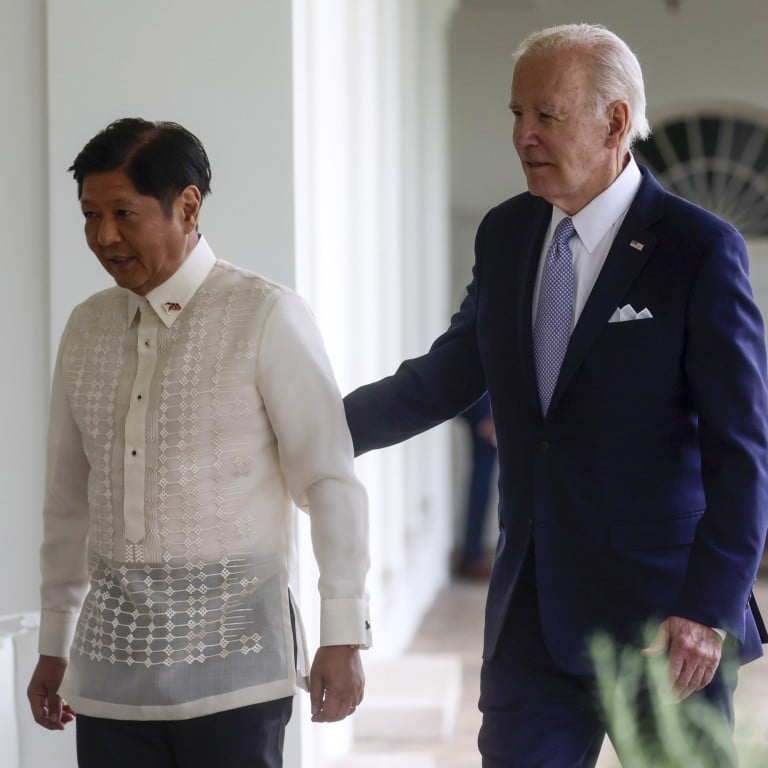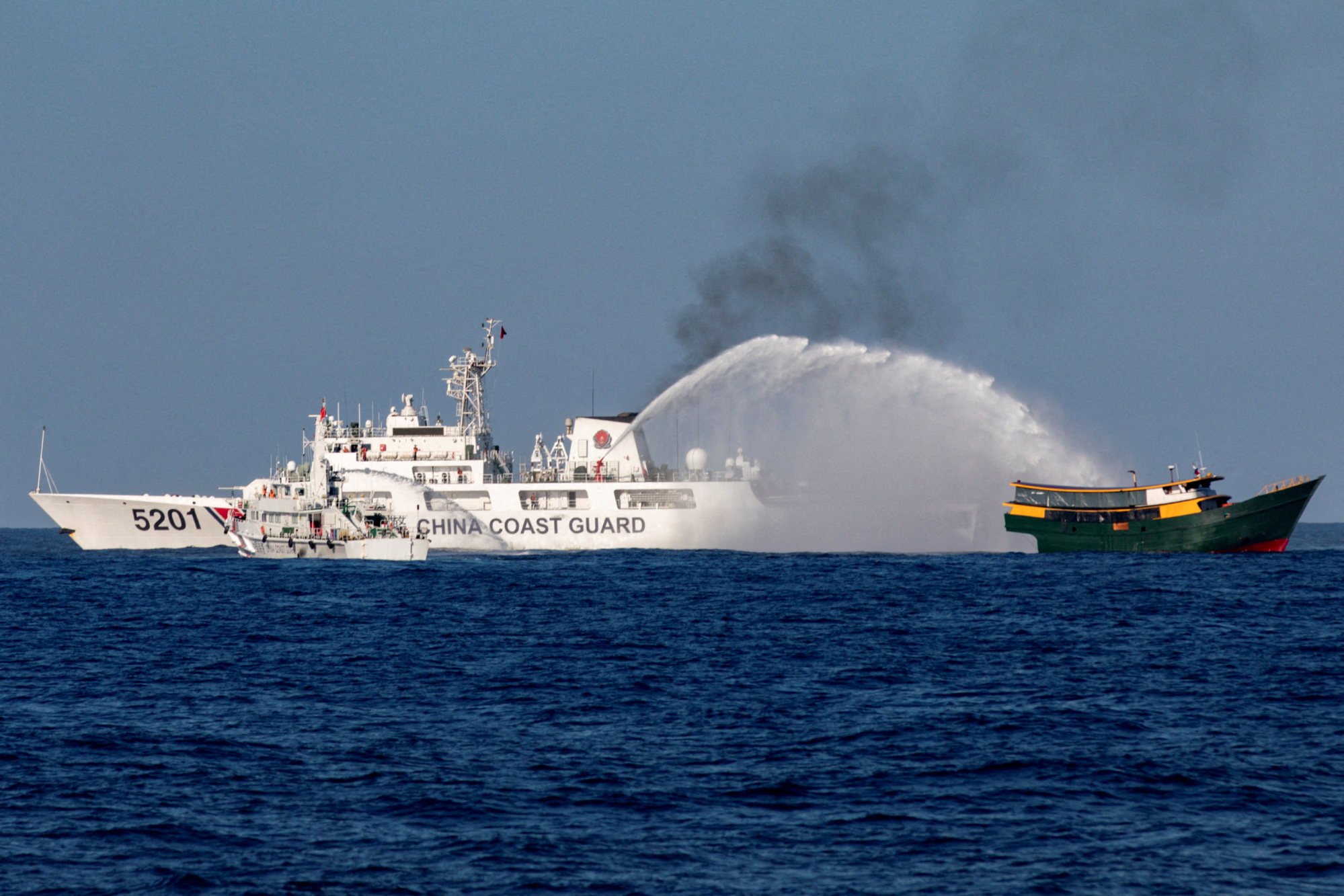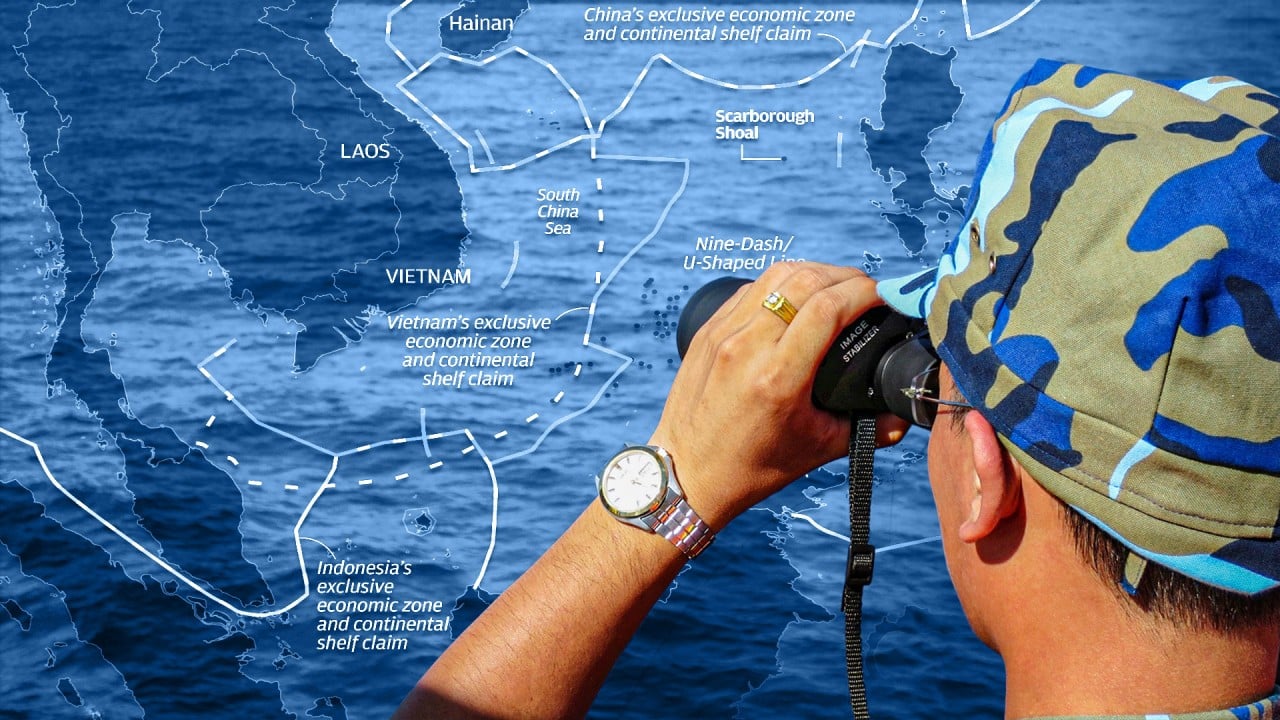
Philippines-China relations: will 3-way summit with US, Japan further erode Manila-Beijing ties?
- Manila says the summit isn’t ‘directed at any country’. But analysts speculate it aims to strengthen maritime defensive efforts to counter China
- It comes as Japan, the US, Australia and the Philippines have held joint drills in the South China Sea after the latest Second Thomas Shoal face-off
Observers have also speculated that the main reason behind the two-day summit is to strengthen maritime defensive efforts to counter China’s increasingly aggressive actions in the Asia-Pacific.

Romualdez said topics to be discussed during the meeting would include defence and security cooperation, addressing emerging and traditional security threats in the maritime domain, economic and technological cooperation, and clean energy.
How South China Sea controversies put Chinese interests in Vietnam at stake
China has competing claims in the South China Sea not only with the Philippines but also Malaysia, Brunei and Vietnam.
Beijing has refused to accept the ruling.
In 2012, China imposed tighter controls over banana imports from the Philippines after Manila took Beijing to the international court alleging that Chinese naval vessels had obstructed the Philippines’ entry to Scarborough Shoal.
Banana exports from the Philippines to China stood at US$406 million in 2022, according to data from Boston-based data visualisation site the Observatory of Economic Complexity.
Marcos Jnr on Monday expressed hope for an end to Chinese aggression in the West Philippine Sea - Manila’s name for the parts of the South China Sea that fall within its exclusive economic zone - after the joint military exercises, saying Philippine officials were continuing to talk to their Chinese counterparts to prevent tensions from escalating.
“We continue to talk at a ministerial level, at a sub-ministerial level, at a people-to-people level, so that there will be no collisions and water cannoning,” he said.
On the same day as the maritime drills, Beijing announced it would conduct similar exercises in the waterway.
PLA patrols South China Sea as US, Philippines, Japan and Australia hold drills
On Monday, however, Philippine armed forces chief General Romeo Brawner Jnr said they had not yet encountered any Chinese “combat patrols”.
“While we were conducting our own exercises in the West Philippine Sea, we only monitored the presence of two PLA Navy ships and there were no combat patrols or exercises,” he said.
The 39th edition of the annual exercises, carried out under the two countries’ 1951 Mutual Defence Treaty, aim to enhance force capability and strengthen cooperation in maritime security, amphibious operations, live-fire training, urban and aviation operations, counterterrorism, humanitarian assistance and disaster relief.
Their treaty obliges both countries to aid the other in the face of aggression from an external power, and the Pentagon has said it remained prepared to assist Manila amid threats from other nations.

